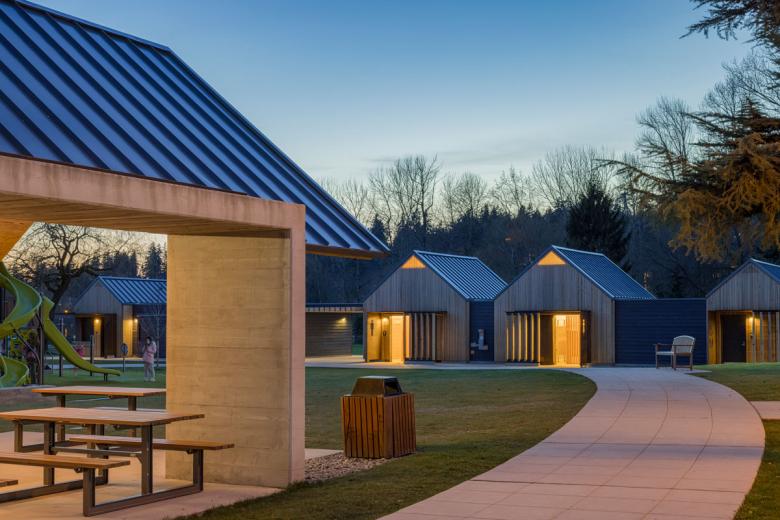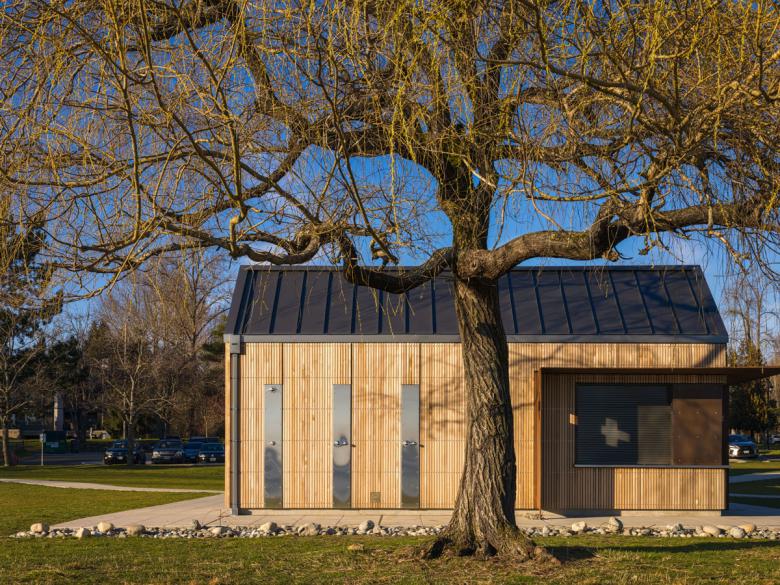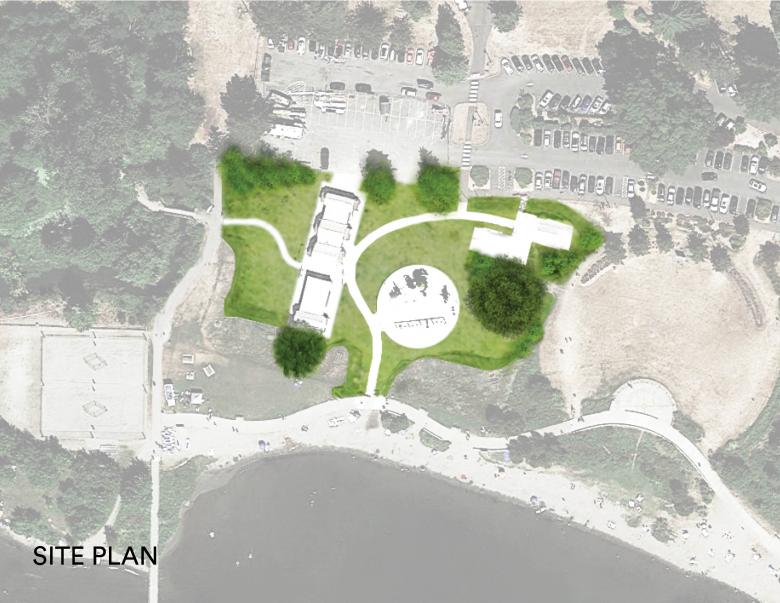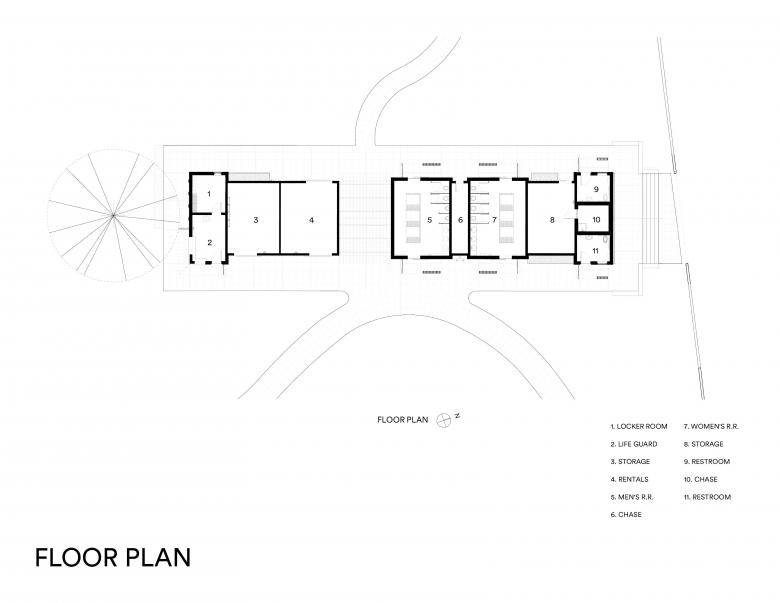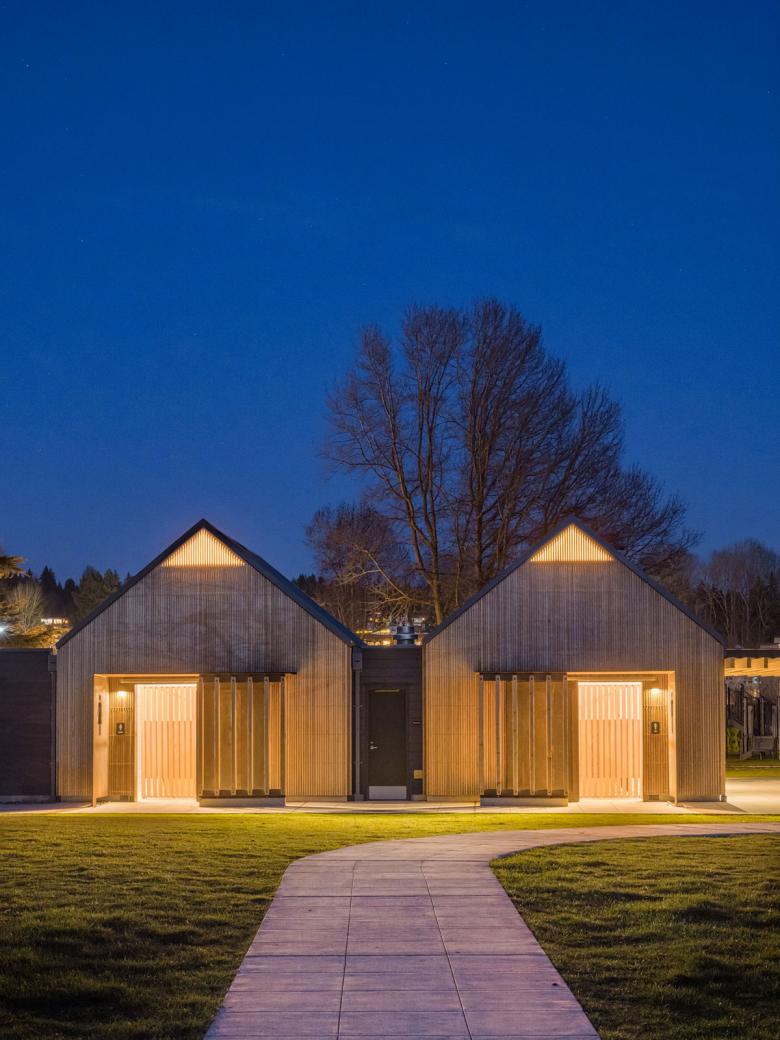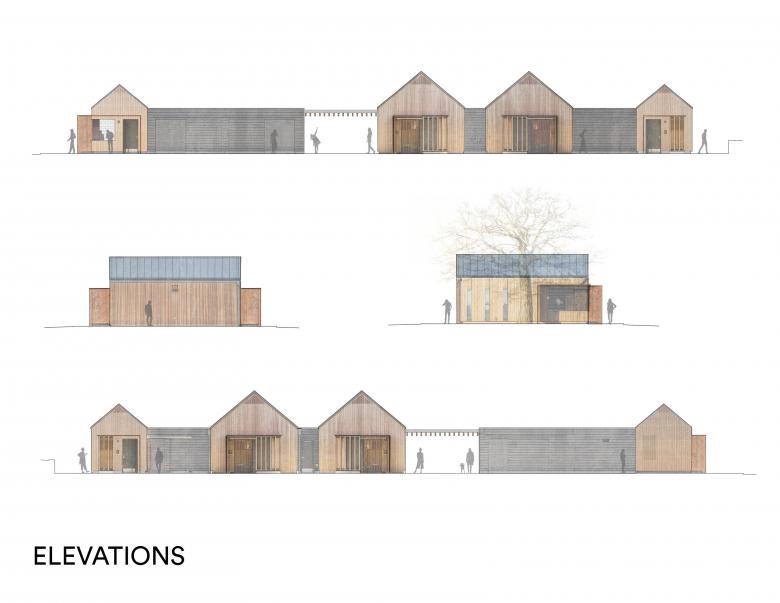US Building of the Week
Juanita Beach Bathhouse
EHDD
3. 四月 2023
Photo: Ed Sozinho
As spring brings the promise of warmer weather, many people's thoughts turn to outdoor activities such as sunbathing, swimming, and sand volleyball. Juanita Beach Park in Kirkland, Washington, is a year-round neighborhood amenity with these and other activities. A bathhouse with restrooms designed by EHDD accommodates swimmers who want to take a dip in Lake Washington. The architects answered a few questions about the project.
Location: Kirkland, Washington, USA
Client: Kirkland Parks and Community Service
Developer: City of Kirkland, Parks & Community Services
Architect: EHDD
- Design Principal: Christopher Patano
- Project Architect: Dan Leckman
- Project Manager: Erik Barr
- Project Team: Grace Moreyra
Mechanical & Plumbing Engineer: Rainbow Mechanical
Electrical Engineer: Coffman Engineers, Inc.
Landscape Architect & Civil Engineer: MIG
Environmental Permitting and Wetland Biology: Shannon & Wilson
General Contractor: Synergy Construction, Inc.
Site Area: 22 acres
Building Area: 4,870 sf (combined)
Photo: Ed Sozinho
Please provide an overview of the project.Situated along the eastern shore of Lake Washington, the new Juanita Beach Bathhouse is a year-round facility in the 22-acre Juanita Beach Park. The project features a new bathhouse and two new picnic pavilions centered around an accessible-to-all playground. The bathhouse contains restrooms, concessions, a lifeguard station, emergency vehicle storage, and paddleboard rentals. In addition, the City of Kirkland rents out the picnic pavilions to the public, with the largest pavilion able to accommodate groups of up to 100 people. Conceptually, the new bathhouse reflects the history of the site, which has been a center of activity since before the founding of Kirkland, WA. The form and scale of the bathhouse represent the logging and wood shingle mill history on site.
Site Plan (Drawing: EHDD)
What are the main ideas and inspirations influencing the design of the building?The new bathhouse’s orientation on site reopens the views to the lake from the surrounding neighborhood. The addition of covered pavilions on the site by the project provides rentable space by the parks department and space for informal use by the larger public. The pavilions were designed for maximum transparency to amplify and frame the lake view. The site design adds a new accessible play structure and enhanced accessible walking trails across the site and down to the lakefront. Elegant, simple materials were utilized to create a series of beautiful and durable structures for the park.
Site Plan (Drawing: EHDD)
How does the design respond to the unique qualities of the site?As a park structure on a lakefront park between Lake Washington, views were very important, and the build was situated at 90 degrees to the water to minimize view obstruction and open the community to the lake. Pavilion structures were designed to be as transparent as possible, to frame water views rather than block them.
Photo: Ed Sozinho
Was the project influenced by any trends in energy-conservation, construction, or design?As a seasonal-use restroom and recreation building, the building is designed appropriately as a non-conditioned structure per the energy code, with the exception of a small semi-heated plumbing chase serving the all-season restrooms. As such, it uses significantly energy from day to day and contains less embodied energy and global warming potential than would an insulated/heated structure. The building makes use of cross-laminated timber for the roof structure, which sequesters carbon. Wood is showcased throughout, which is a low embodied-energy natural product.
Elevations (Drawing: EHDD)
What products or materials have contributed to the success of the completed building?The exposed cross-laminated timber roof structure, glazed-face concrete masonry units for bathhouse walls / interiors, and the bent steel plate canopies at bathhouse entries are all simple materials that perform double duty as structure and beautiful finish materials. All these materials are very robust and will continue to function for many years without need for replacement or significant maintenance. This simple palette, used well, brings richness and beauty to the structure and the surrounding landscape without significant added cost or carbon impacts.
Email interview conducted by John Hill.
